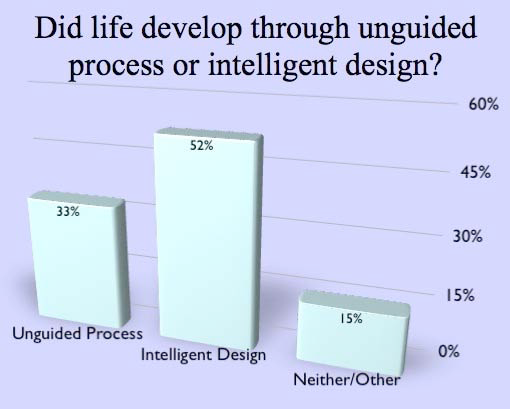Post Author: Bill Pratt
Seldom a month goes by that a major announcement isn’t made about a fossil that demonstrates the evolutionary lineage of some animal. These announcements have always fascinated me because of the bold claims that are made.
But something I have struggled with for a long time is understanding exactly how paleontologists can make decisive claims about lineage based on the fossil record. Recently, Greg Koukl, of Stand To Reason, wrote a fascinating article about this very topic. In particular, he was addressing the fossil dubbed “Ida,” which is supposedly a missing link in the human evolutionary chain. According to one scientist, “Ida is an example of a transitional fossil between primitive primates and the prosimian and anthropoid branches, the latter of which eventually led to humans. . . . She is the earliest, and one of the most significant links, ever found.”
Koukl explains the way paleontologists label a fossil a “missing link”:
If a fossil is midway in development between two other specimens (if it shares physical characteristics of both) and falls between them in time, it is considered transitional even if the distances in time are very great. This is the empirical situation paleontologists actually face when surveying the fossil record.
Since Ida existed 47 million years ago, and modern humans were found in the fossil record 100,000 years ago, there is a huge time delta between the two. Paleontologists need to fill in the blanks between the two fossils of 46.9 million years. There are, indeed, a handful of hominid fossils before modern humans, such as the well-known Lucy, which is one of the earliest hominid fossils ever found. Lucy existed 3 million years, but that still leaves a 44 million year gap to Ida.
According to Koukl, “Simply because Ida’s bodily characteristics (morphology) rest between two groups on the Darwinian tree of life, she is immediately declared the common ancestor – the missing link – between both groups,” regardless of the massive amount of time separating them.
Koukl asks the reader to imagine the Darwinian tree of life as a series of roads and highways leading from east to west in the continental US. If you have access to Google Earth, you could see the highways all interconnected from satellite photos. But sometimes there are clouds that block your view and you cannot see all the roads as they are interconnected. Imagine further:
A massive front covers the continental U.S. save for occasional gaps that allow you to glimpse short pieces of highway every few hundred miles. Your task is to determine which sections of road connect with each other to form routes from the east to specific destinations in the west like L.A., San Francisco, or Seattle.
Would you be justified in inferring a connection if one section in west Texas fell between a length of highway in central New Mexico and one in southern Arkansas as long as each section ran roughly in the same direction?
I think you can immediately see the peril of this approach. Clearly, there would be no way to tell from the empirical evidence alone which sections of road connected with other segments of highway to lead you to a specific destination. In the same way, how can we have confidence that one specimen in the fossil record is the ancestor of another specimen that is millions of years removed from it in time?
The lesson here is simple: You must first know that the highways link up before you can trust that any particular segments of the roadway connect the route. By parallel, you must first assume that evolution is true before you can place alleged transitions in their “proper” evolutionary pathways.
In other words, missing links can never answer the question as to whether common descent has really occurred. Only after you assume that common descent is true does it make sense to try and make these ancestral connections between fossils. The fossil record cannot prove that humans are descended from a creature that lived 47 million years ago.
If all the clouds cleared away, and we could see the millions of small transitions that occurred between Ida and Lucy, and then Lucy to modern humans, then we would have a compelling case for claiming that we know the ancestry of humans. But the fossil record is fragmentary, leaving gaps of millions of years between fossils, which represents millions of transitional forms.
As long as large clouds block our view (i.e., the fossil record is fragmentary), we cannot know, and it is extremely disingenuous of scientists to tell us that they do know these things. The data does not allow for that kind of confidence.
